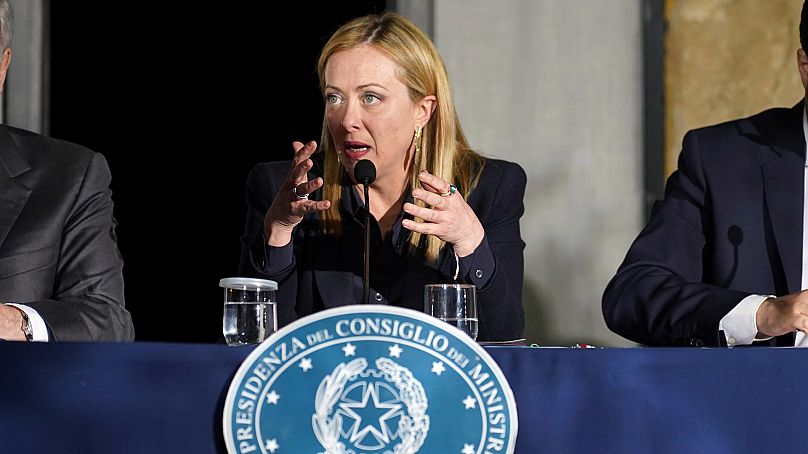More than 100 migrants, including 24 minors, arrived at the Italian port of Brindisi after they were rescued from the Mediterranean.
A group of 105 migrants rescued from the Mediterranean have arrived at the Italian port of Brindisi aboard the "Life Support" ship of the NGO Emergency. A pregnant woman and 24 unaccompanied minors, the youngest being two years old, were among the migrants.
 ADVERTISEMENT
ADVERTISEMENT
 ADVERTISEMENT
ADVERTISEMENT
They were originally rescued from the Mediterranean on 6 March. The operation took three hours because the boat was only 12 metres long and was taking on water.
Its engine had broken down and the weather conditions were deteriorating. All the migrants are reportedly in good condition, but many of them have marks on their bodies from their time in Libya, where there are allegations of torture.
This rescue comes as arrivals have been increasing in Italy. In the refugee centre on the island of Lampedusa, there are more than 3,000 migrants crammed together after dozens of boats arrived in recent days.
The centre only has a capacity for 300 people.
Crackdown on smugglers in Italy
Italian Premier Giorgia Meloni unveiled her right-wing government's plans to crack down on people smugglers following a Cabinet meeting she led Thursday in the southern town near the beach where a wooden boat packed with migrants broke apart 11 days earlier, killing scores and leaving many unaccounted for.
By holding the meeting in Cutro, Calabria, instead of the capital, Rome, Meloni said she was stressing her resolve to “combat the slavery of the Third Millennium.”
She announced that her Cabinet had approved a decree establishing a new crime — people smuggling that results in the death of migrants — punishable by up to 30 years in prison.
According to details of the approved decrees, provided by Meloni's office Thursday night, the punishment for the death of a sole migrant could bring up to 24 years in prison.
The Cabinet decree must be converted into law by Parliament, where Meloni's right-wing coalition holds a comfortable majority.
The decree also empowers Italy to pursue smugglers even if the crimes are committed "outside our national borders,'' Meloni said.
'Racist remarks' against migrants in Tunisia
Meanwhile, 14 sub-Saharan migrants drowned Thursday in Tunisian waters.
The deaths come as the International Federation for Human Rights (FIDH) and Amnesty International have condemned "racist remarks" made by Tunisian President Kais Saied against migrants of sub-Saharan origin.
On February 21, Tunisian President Kais Saied said the presence of "hordes" of illegal immigrants from sub-Saharan Africa was a source of "violence and crime" and a "criminal enterprise" to "change the demographic composition" of the country.
His comments were followed by an upsurge in attacks on these migrants, and dozens of them asked their embassies to be repatriated.
"FIDH, its 54 member organizations in Africa and its 188 organizations worldwide oppose with all their might the verbal and physical violence against migrants on Tunisian soil," FIDH President Alice Mogwe said in a statement.
"Calling for hatred against people who already suffer discrimination, violence and deprivation is particularly the height of brutality [...] appeal particularly to the responsibility of Tunisian leaders, what legacy will you leave in history?"











